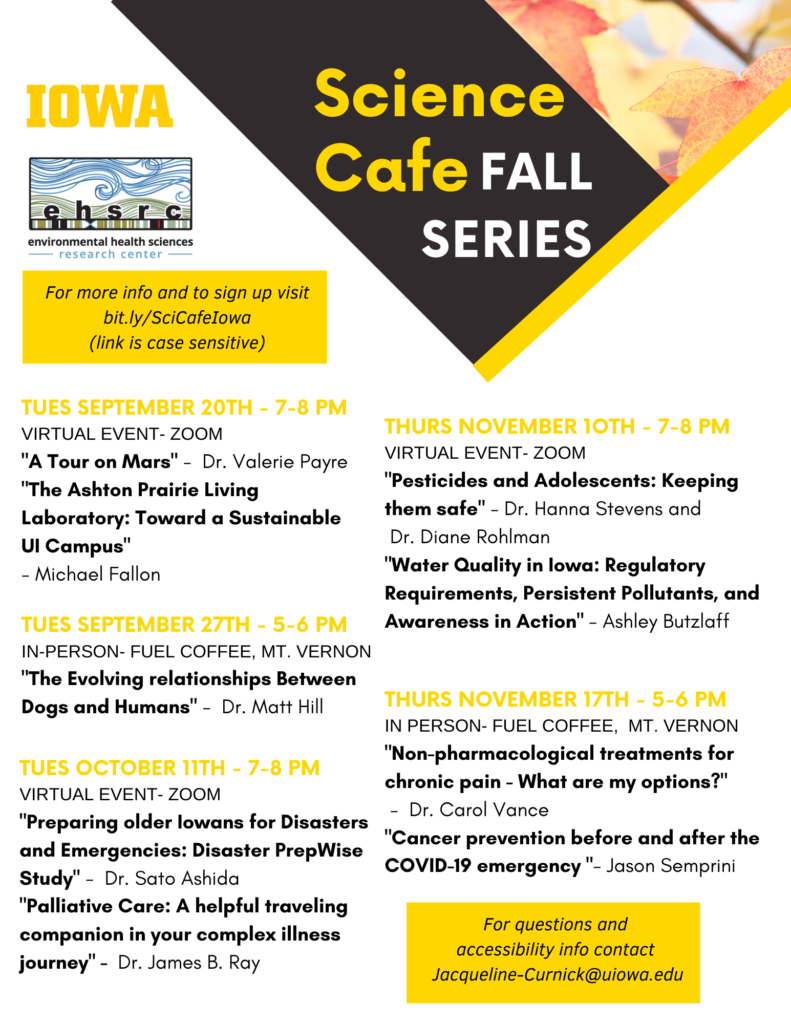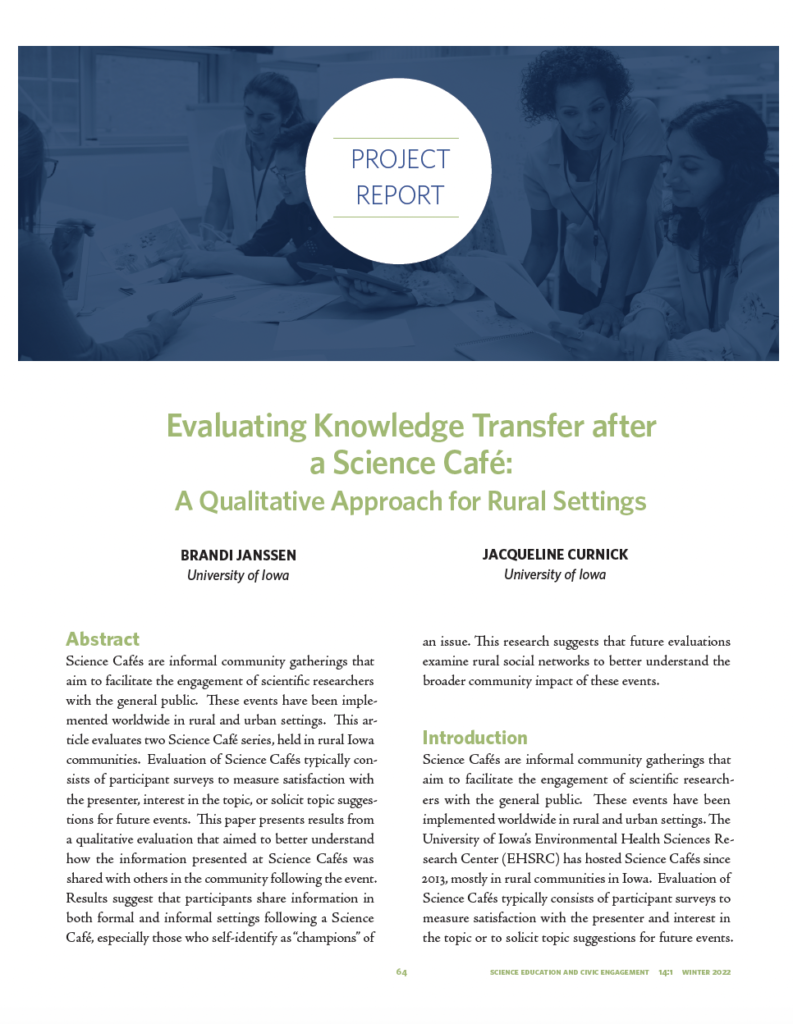Congratulations to EHSRC member Aliasger Salem for a recent R21 award from NIEHS. This proposal will develop a CaMKIIN-loaded nanoparticle-based therapy that can rapidly mitigate the ROS species in the lung following chlorine exposure. Other researchers participating in this project include Peter Thorne, Andrea Dodd, and Isabella Grumbach. The Pulmonary Toxicology Facility of the EHSRC will provide support for the animal studies under this project.


